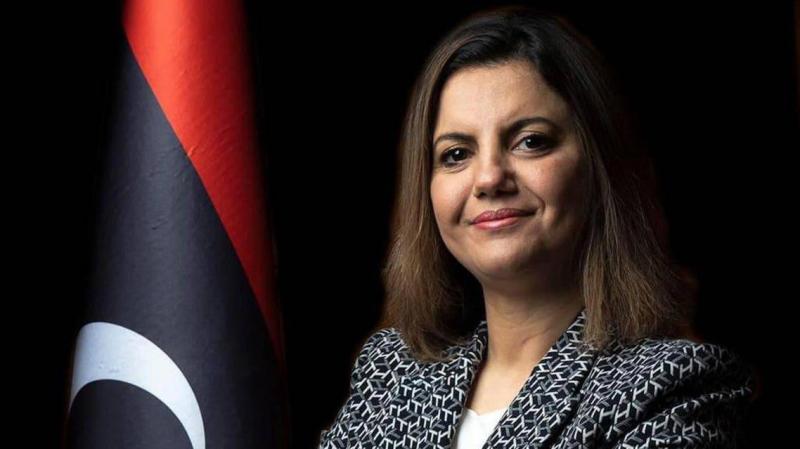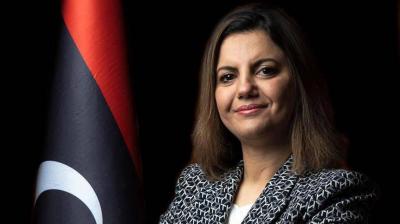The Libyan Presidential Council decided on Saturday to provisionally suspend Foreign Minister Najla Mangoush from her duties to open an investigation into alleged administrative violations related to her unilateral handling of foreign policy without coordination with the council. This was stated in a communiqué attributed to the Presidential Council, which also included a travel ban on the foreign minister until the investigations are completed and the results are reviewed by the council.
Consequently, the Presidential Council has formed a committee to investigate Mangoush, headed by Deputy Council Member Abdullah Al-Lafi, with members Adel Mohamed Sultan and Ahmed Jumaa Aqoub. The committee will present a report on its findings within a maximum period of 14 days.
This decision came a day after statements from Foreign Minister Najla Mangoush, in which she discussed her country's readiness to cooperate with the United States for the extradition of Libyan intelligence officer Abdul-Baset Al-Maqrahi, who is suspected of involvement in the bombing of the plane that crashed over Lockerbie, Scotland, in 1988. These statements provoked widespread condemnation in the country and accusations against the minister of acting against Libya's interests.
This is not the first time that the actions and activities of Foreign Minister Najla Mangoush have provoked discontent from the Presidential Council. The issue of appointments to diplomatic missions abroad has also been a source of disputes and conflicts over authority.
In September, the council criticized the National Unity Government's Prime Minister for Mangoush's termination of some heads of diplomatic and consular missions abroad without consulting the council. The minister's actions were described as "unilateral and provocative," emphasizing that these measures are "invalid by law and considered as non-existent," underscoring that "the appointment and dismissal of heads of diplomatic missions and the termination of their tenures abroad falls under the collective competence of the Presidential Council only, based on correspondence from the Ministry of Foreign Affairs and International Cooperation that is presented to the government and then submitted to us for decision, supported by reasons."




